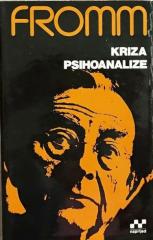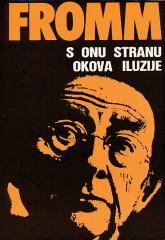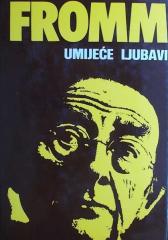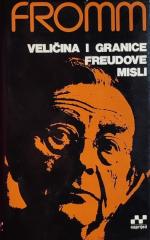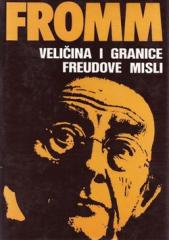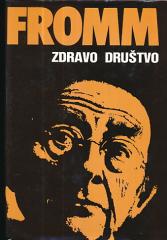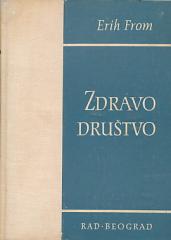Erich Fromm
Erich Fromm (1900.–1980.) bio je njemačko-američki socijalni psiholog, psihoanalitičar, filozof i humanistički mislilac. Rođen je u Frankfurtu u židovskoj obitelji, a studirao je sociologiju, psihologiju i filozofiju u Heidelbergu. Bio je povezan s Frankfurtskom školom kritičke teorije i intenzivno se bavio povezivanjem psihoanalize s društvenom teorijom i humanističkom etikom.
Fromm je vjerovao da se ljudska psihologija ne može razumjeti bez konteksta društva u kojem osoba živi. Njegovo najpoznatije djelo, Bijeg od slobode (1941.), analizira kako su se pojedinci u modernom društvu okrenuli autoritarnim ideologijama da bi izbjegli teret osobne slobode. U djelima Umijeće ljubavi, Zdravo društvo i Imati ili biti, promiče ideje autentične ljubavi, individualne zrelosti i etičkog humanizma.
Za Fromma je ideal bila društvena transformacija koja omogućuje razvoj čovjeka kao slobodnog, kreativnog i odgovornog bića. Bio je aktivan i u političkom životu, zalažući se za mir, razboritost i demokratski socijalizam. Nakon dolaska nacista na vlast, emigrirao je u SAD, gdje je nastavio akademsku i terapijsku karijeru.
Preminuo je 1980. godine u Švicarskoj, ostavivši dubok trag u humanističkoj psihologiji i društvenoj filozofiji.
Titles in our offer
Kriza psihoanalize - Analitička socijalna psihologija i društvena teorija
Fromm se razvijao kao kritičar suvremenog društva pod utjecajem Marxa, Freuda i Frankfurtskog kruga. Istakao kao originalni kritički interpretator Freudovih koncepcija koje su njegova druga osnovna inspiracija.
S onu stranu okova iluzije: Moj susret s Marxom i Freudom
U autobiografsko-filozofskom djelu "S onu stranu okova iluzije", Erich Fromm prikazuje vlastiti intelektualni razvoj kroz susret s idejama Karla Marxa i Sigmunda Freuda.
Umijeće ljubavi
In "The Art of Loving," Fromm argues that love is an art that requires knowledge, effort, and practice, not just an emotion or a random occurrence. In modern society, people often understand love as an object to be "found," rather than as a skill to be de
Veličina i granice Freudove misli
Fromm developed as a critic of contemporary society under the influence of Marx, Freud and the Frankfurt circle. He stood out as an original critical interpreter of Freud's conceptions, which are his second basic inspiration.
Veličina i granice Freudove misli
Zdravo društvo
In his book "The Healthy Society," Erich Fromm explores what makes a society psychologically healthy and what makes it unhealthy. The book represents the crowning achievement of Fromm's social and political philosophy, in which he favors a so-called human
Zdravo društvo
In the book Healthy Society, Fromm tried to show that life in a democracy of the XX. century represents another type of escape from freedom. The analysis of this very escape, in which alienation is the central concept, forms a large part of this book.
